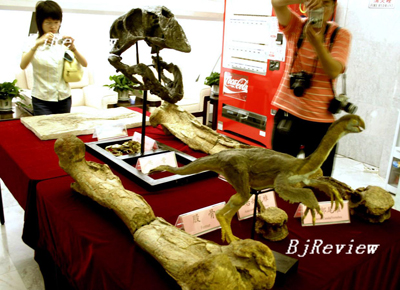
Parachuted' Anti-Graft Chiefs
At the latest Party congress of Tianjin City, Zang Xianpu, formerly an official with the Communist Party of China Central Committee, was elected secretary to the Commission for Discipline Inspection of the northern port municipality. Tianjin is the last of China's four municipalities to have a Party anti-graft chief who has formerly worked for the central authorities. All these appointments have taken place since September 2006 when China began to reshuffle Party leaders in all its provinces, municipalities and autonomous regions in the run-up to its national Party congress this autumn.
These anti-graft chiefs who have been "parachuted in" will have more leeway to investigate corruption as they are less likely to be influenced by local interest groups, the official Xinhua News Agency quoted an analyst as saying. The four officials will serve five-year terms, according to the Party's election law.
New Plan on Mineral Resources
A second national plan on mineral resources, spanning 2006 to 2010, is being drafted and will be submitted to the State Council in August, the Ministry of Land and Resources (MLR) said onJune 12.
The plan will emphasize improving security for mineral resources, strengthening supervision of resource inspection and utilization, and transforming the current mode of exploitation, MLR Head Xu Shaoshi said.
It will also address key relationships, namely, between the current and the future, resource exploitation and environmental protection, a market mechanism and a planning body, as well as domestic and overseas resources and markets, he said.
The first national plan on mineral resources was implemented between 2001 and 2005.
Lazy Officials Punished
About 300 officials in Shenzhen, an economic boom city in south China's Guangdong Province, have been reprimanded by the municipal supervision bureau for "inaction," the bureau said on June 11.
The city launched a drive in October 2005 to boost the work performance of civil servants and get them to accept more responsibility. It is one of the first cities to kick off such a campaign.
In just over a year, 294 people have been identified as chronic under-performers.
Those officials have either received a demerit in their personal files or been demoted, said Yang Hong, Director of the Shenzhen Supervision Bureau.
Quality Meals for Students
With the soaring price of pork and eggs over the last two months, senior Chinese official Li Changchun has urged local governments and schools to ensure quality food supplies at reasonable prices in canteens.
Li, a member of the Standing Committee of the Political Bureau of the CPC Central Committee, made the call during his recent inspection tour of Henan University in Zhengzhou, capital of central China's Henan Province.
Li said food supply is a vital part of a school's services for students, and the government should take effective measures to help schools in this aspect, including raising subsidies and improving management of canteens.
Public Discontent Heard
China's State Council recently approved a new regulation designed to make it
easier for the public to lodge complaints against what they deem as unjust government decisions.
According to the Regulation on Implementing Administrative Review Law, the public has the right to ask the government to review actions and decisions that people believe have infringed upon their rights.
Xinhua quoted an official with the State Council's legal office as saying that the new regulation sets up an important platform for China's administrative organs to solve disputes, ease social tension and strengthen inner monitoring.
To ensure officials do not pass the buck, the regulation also stipulates that government bodies at all levels must take petitions seriously or their chief officials may be sacked. | 